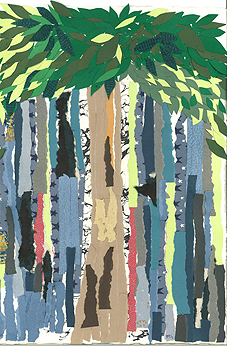West Indian Writers and Cultural Chauvinism
Jerome Teelucksingh
The most poignant of Mohanty’s suggestions for change is to create spaces for criticism to allow the meeting of “high“ and “low“ discourses. Unfortunately, this space for criticism within West Indian literature only occurs at academic conferences or in journals. Mohanty notes that the inputs of social scientists and historians are vital in accessing some of the empirical knowledge. And, he envisions a multidisciplinary collaborative project to include literary critics, philosophers, social scientists and historians. This kind of intervention, where persons in other disciplines and professions come together, is needed. Mohanty sought to emphasize that translation poses problems and that some words in Senapati’s novel were not translated because there were no English equivalents. But West Indian novelists have comfortably used the local dialect or creole in their writings. Caribbean phrases and expressions have been used and publishers have not seen the need for explanations or translations. Nonetheless, troubling questions arise as to the choice of writers: Who will decide the works that are appropriate (and in need of translation) for this new literary paradigm? Would the selected works of these persons provide the catalyst to create a corpus of literature that eschews chauvinism? These questions need to be adequately answered before we can boast of literary progress. Mohanty contends that short stories and songs of yogis, mystics, medieval and early modern bards were “analysing empirical information“ and “testing new theories.“ He further states that present day recitation of Kabir is proof of the co-existence of literature and criticism among ordinary citizens of India. In retrospect, this cultural dimension would be absent from a region such as the Caribbean which did not have a history of yogis, mystics or ancient texts. Instead, the Caribbean region has a wealth of oral history of indigenous tribes. Unfortunately, most of this early history has been lost due to tribes being decimated and a lack of interest among incoming migrants. In this crucial engagement to eliminate cultural chauvinism, however, West Indian writers need to tread carefully because of the existence of other chauvinisms. For instance there is now the urgent need to consider and eradicate the existence of historical chauvinism, sociological chauvinism and political chauvinism within Political Science, History and Sociology. Another obvious challenge is the ongoing debate as to the extent in which non-fiction influences the writer.5 The meeting of two discourses and the shifting from literary, cultural and historical dimensions will pose potential problems. For instance, one question that needs to be addressed is: Would the fragments of writings from India and elsewhere remain more theoretical rather than practical? If so, then it would fail to generate the momentum necessary to permanently transform the literary world. Additionally, Mohanty contends that complex texts “teach us how to be better readers.“ This is a generalized statement that is not applicable to the public but for a few persons who appreciate or are exposed to complex texts. For instance, not many persons would be as gifted as Mohanty to identify the “metaphorical subtext“ and to reveal its radical subaltern values. Pages: 1 2 3 4 |
Essays in this Forum
Rethinking the Global South
by Mukoma Wa Ngugi From Indian Literature to World Literature: A Conversation with Satya P. Mohanty by Rashmi Dube Bhatnagar and Rajender Kaur Asia in My Life by Ngugi wa Thiong'o The Global South and Cultural Struggles: On the Afro-Asian People’s Solidarity Organization by Duncan Mceachern Yoon The Fault Lines of Hindi and Urdu by Sanjay Kumar Reframing Colonialism and Modernity: An Endeavour through Sociology and Literature by Gurminder K. Bhambra Varieties of Cultural Chauvinism and the Relevance of Comparative Studies by Tilottoma Misra Literature to Combat Cultural Chauvinism: A Response by Shivani Jha Is There an Indian Way of Thinking about Comparative Literature? by E. V. Ramakrishnan Modernity and Public Sphere in Vernacular by Purushottam Agrawal West Indian Writers and Cultural Chauvinism by Jerome Teelucksingh Oral Knowledge in Berber Women’s Expressions of the Sacred by Fatima Sadiki |
